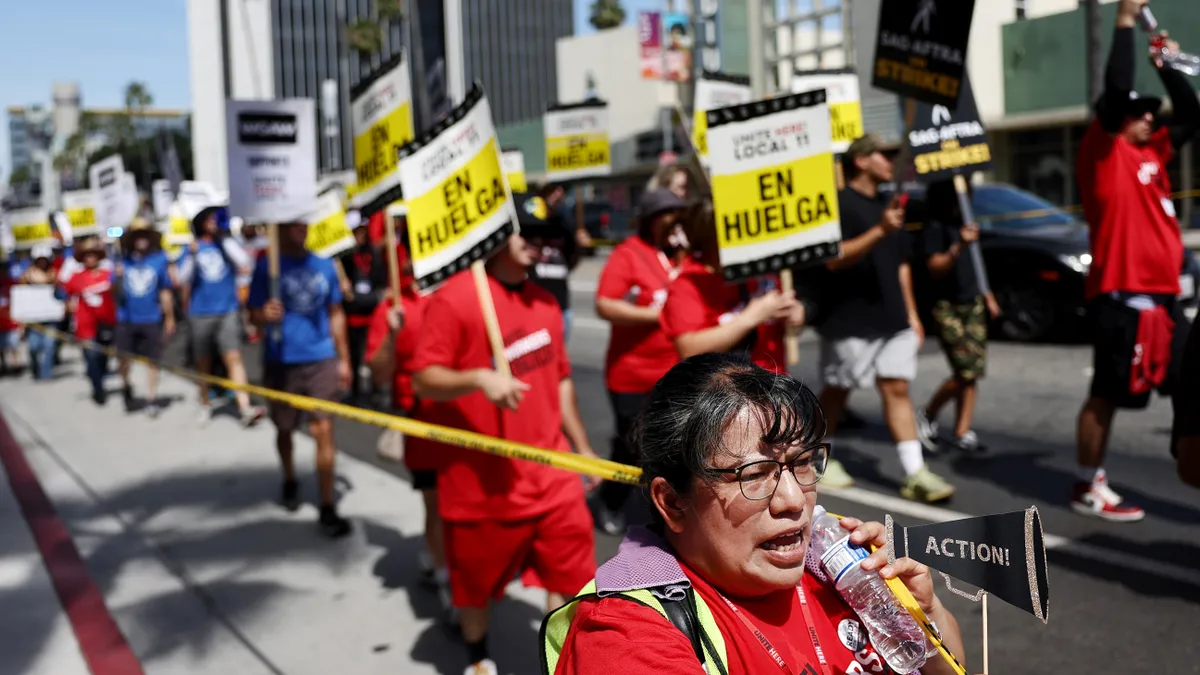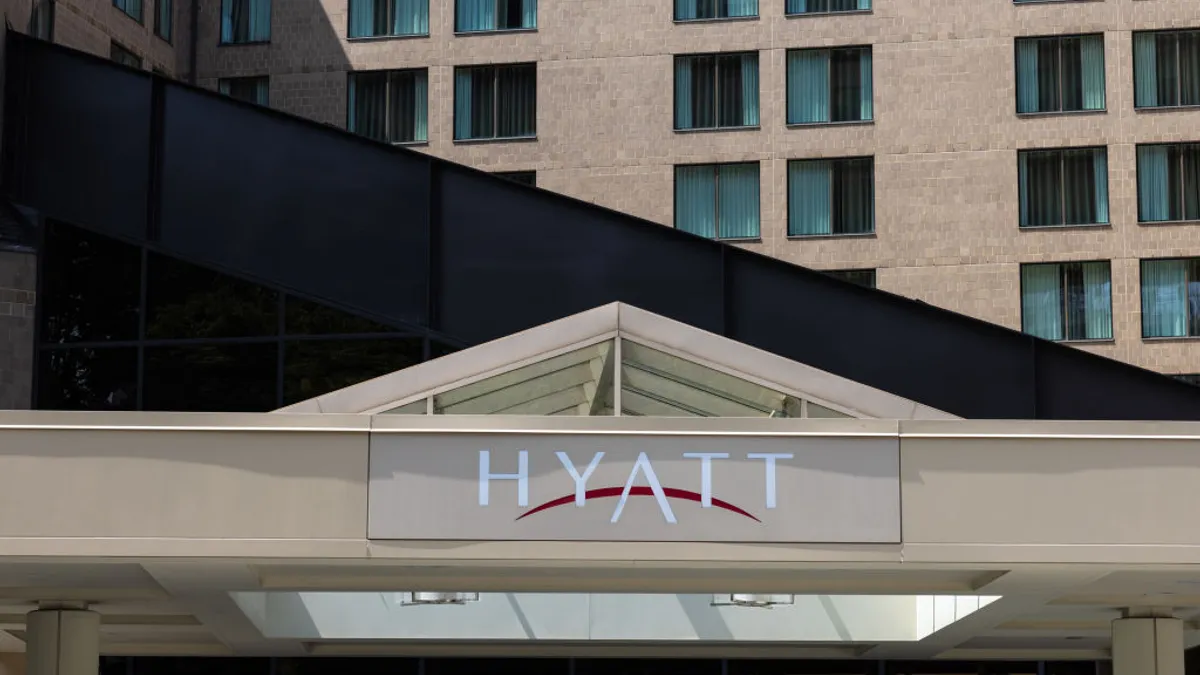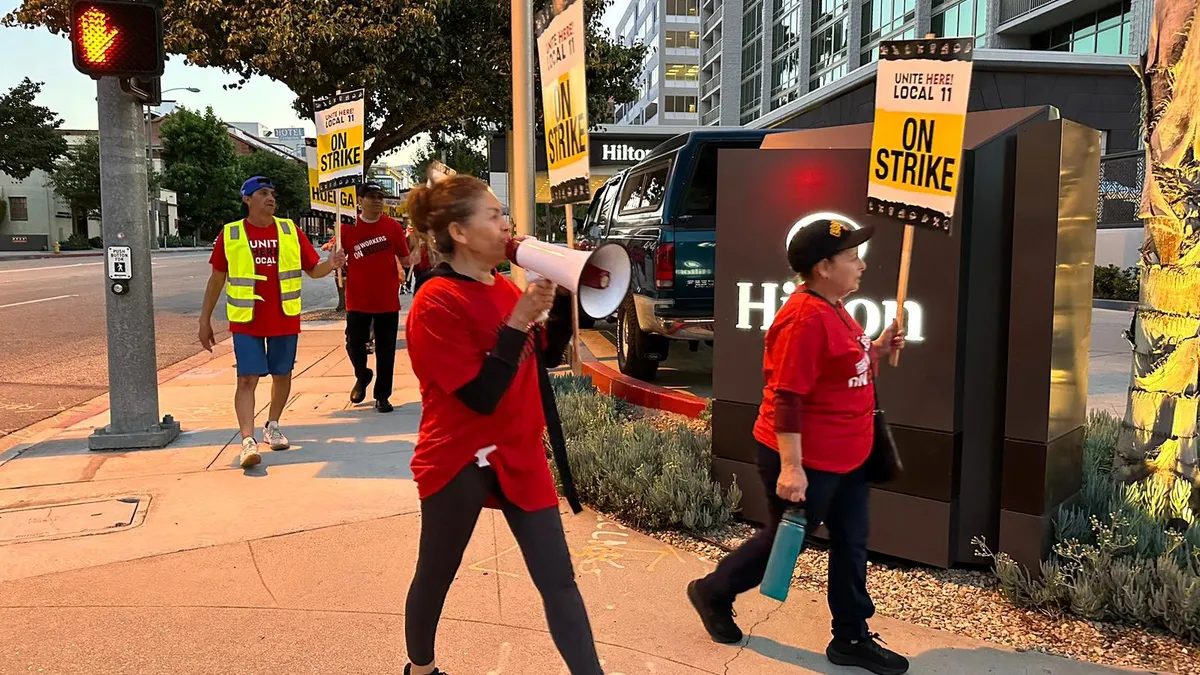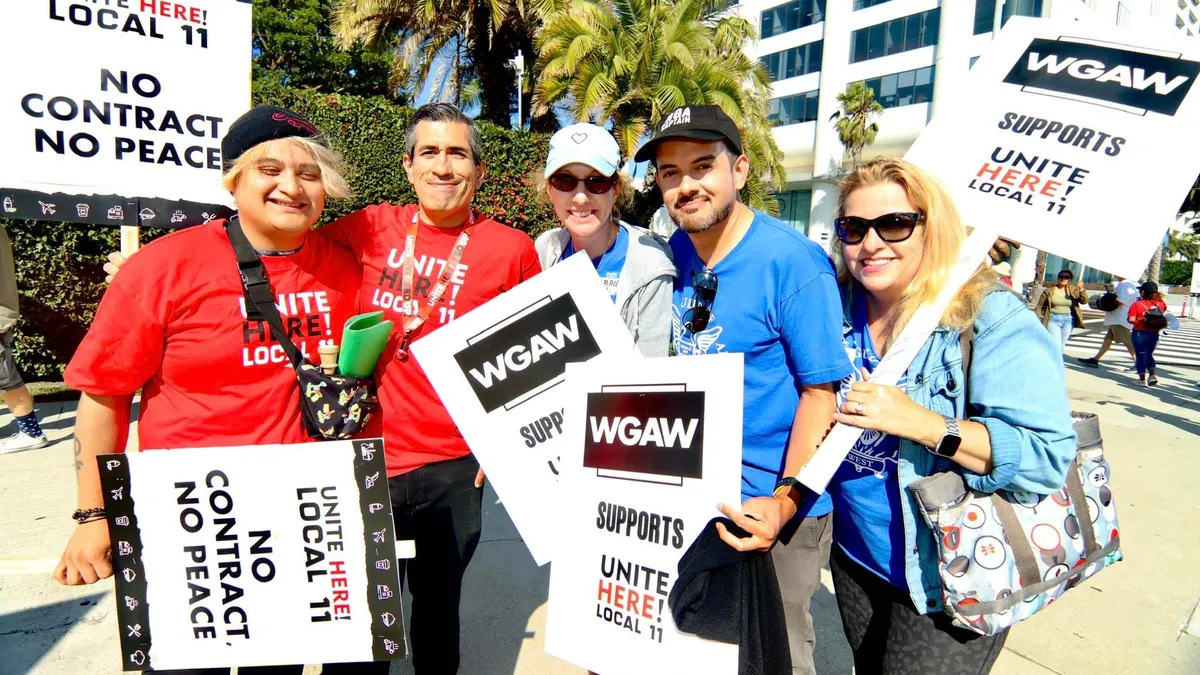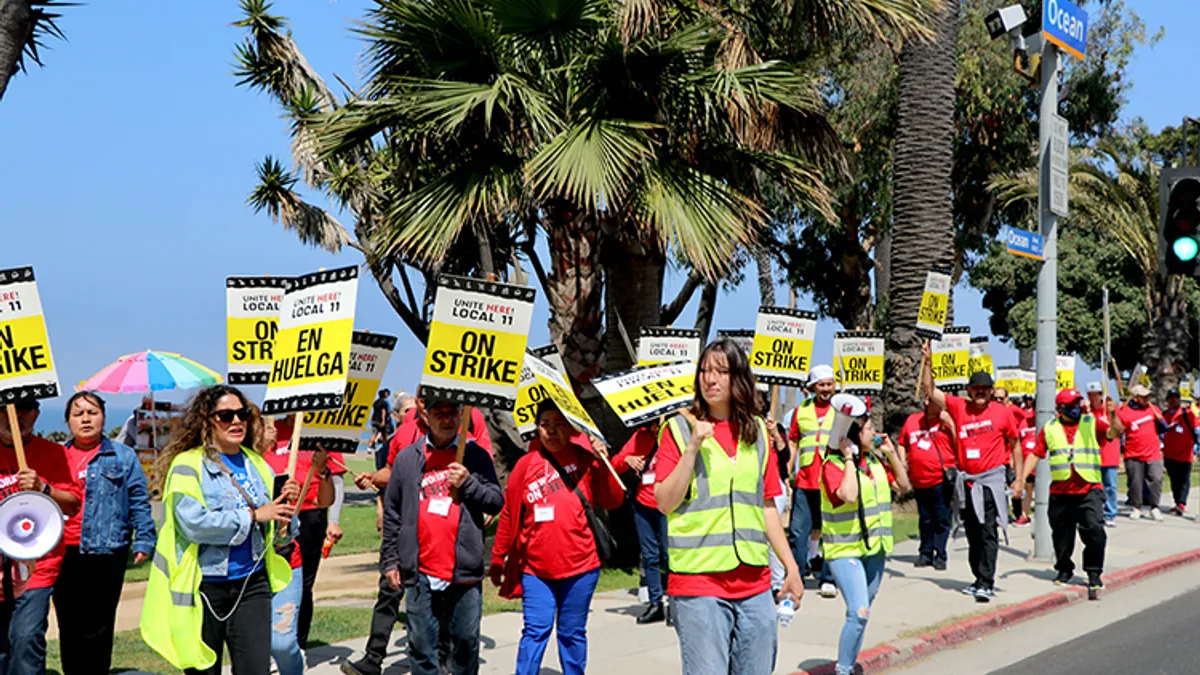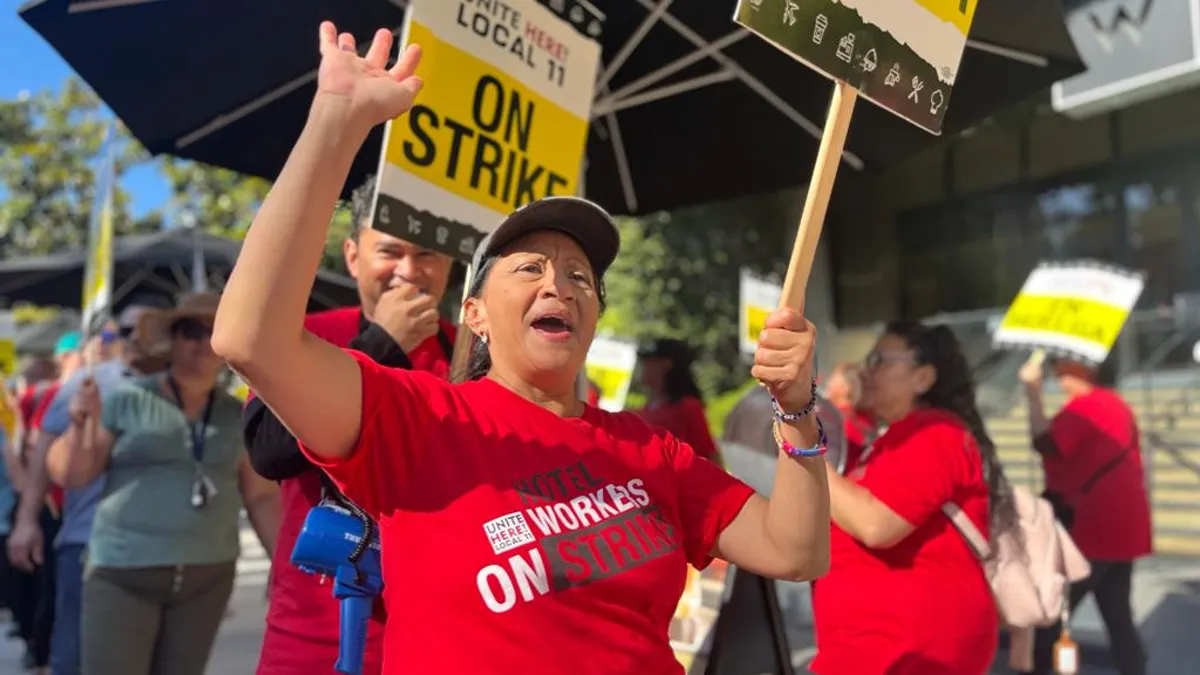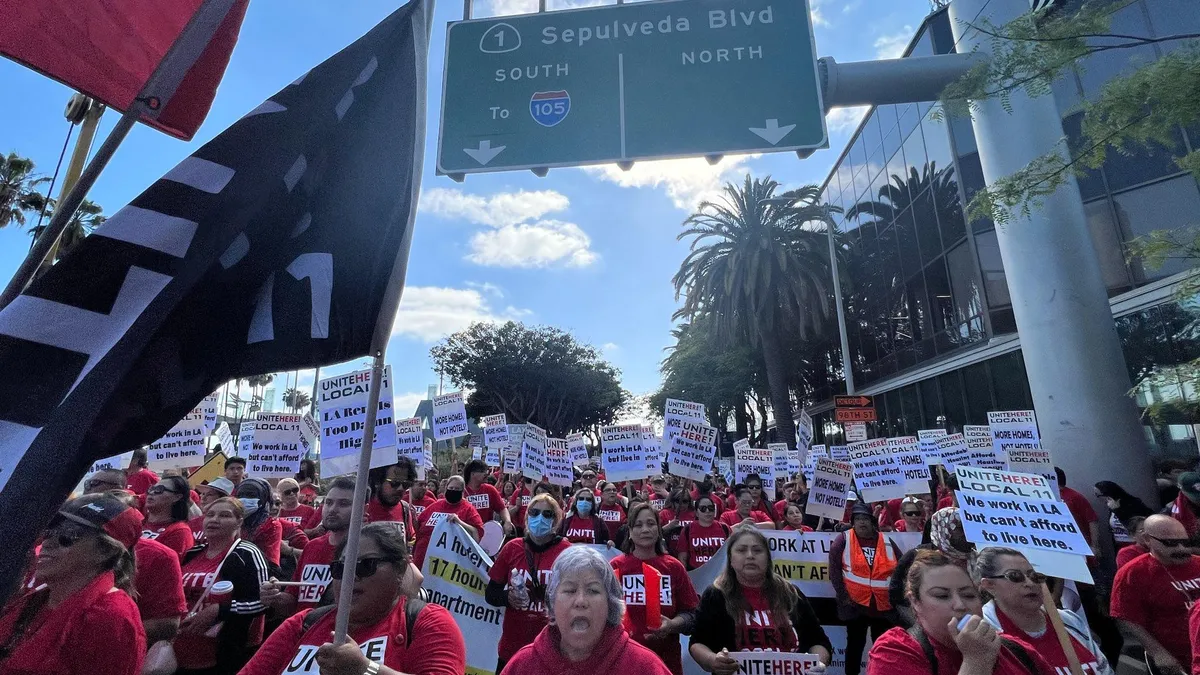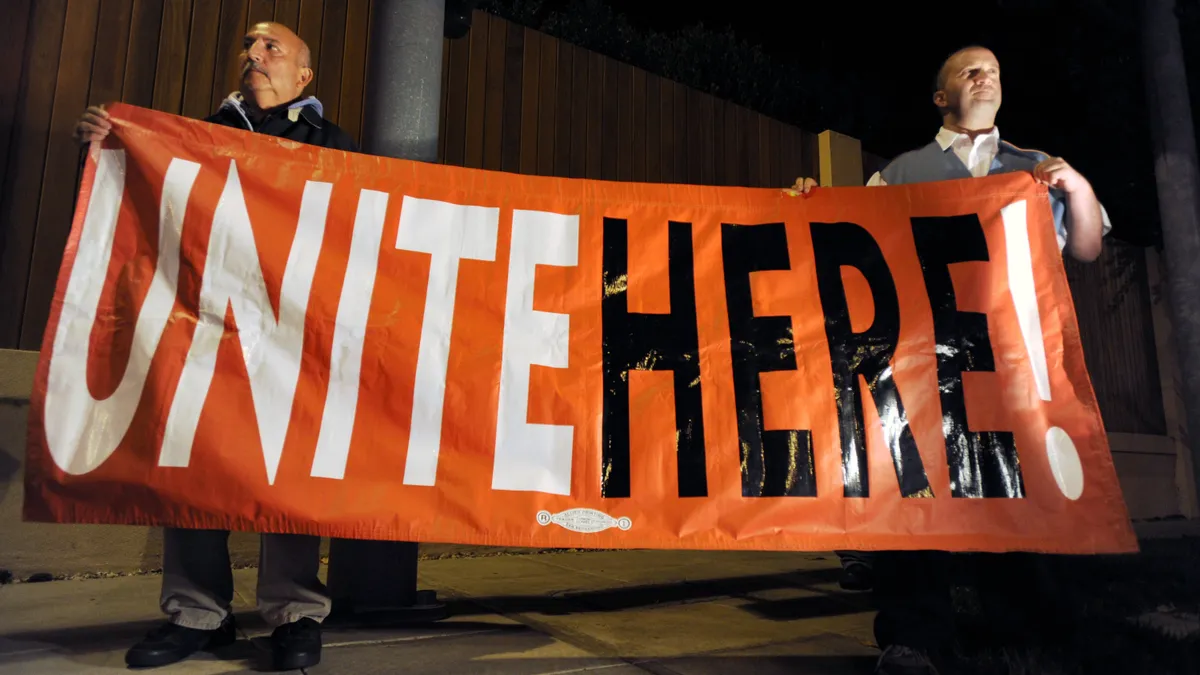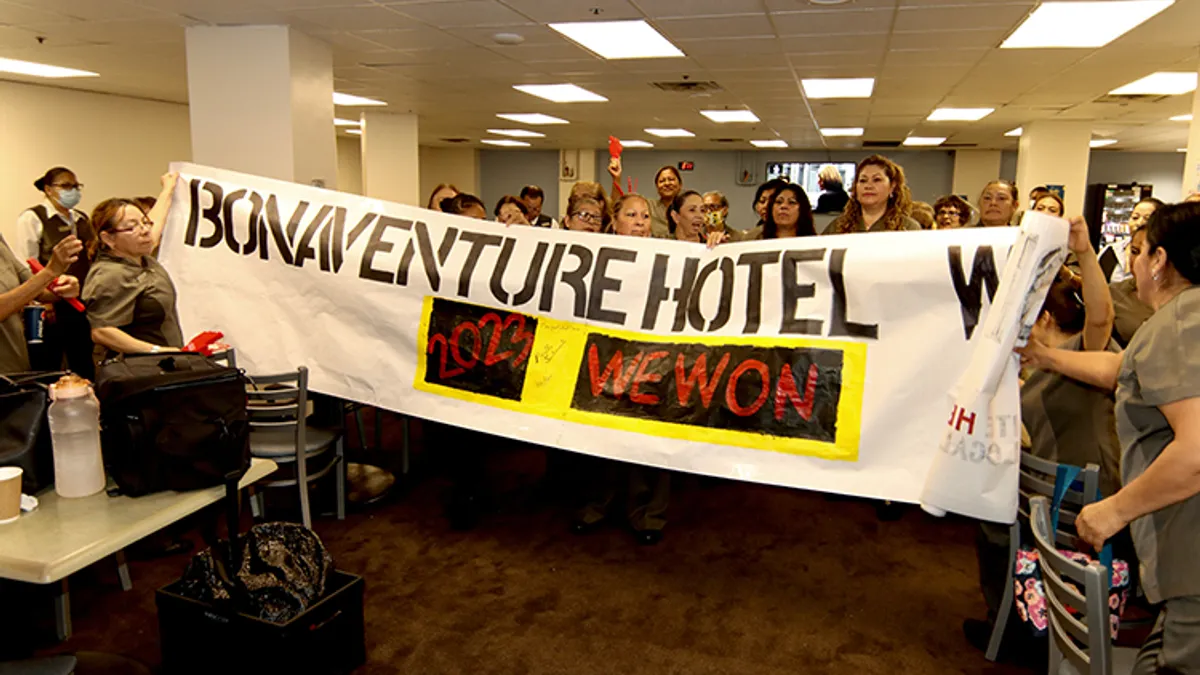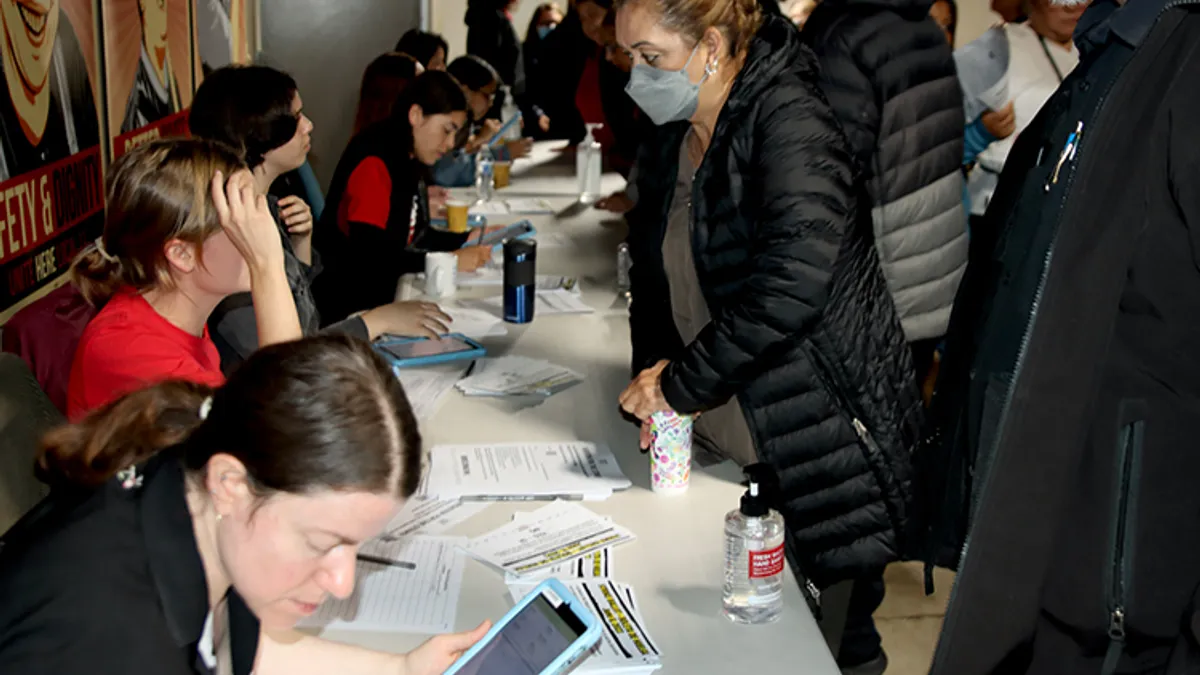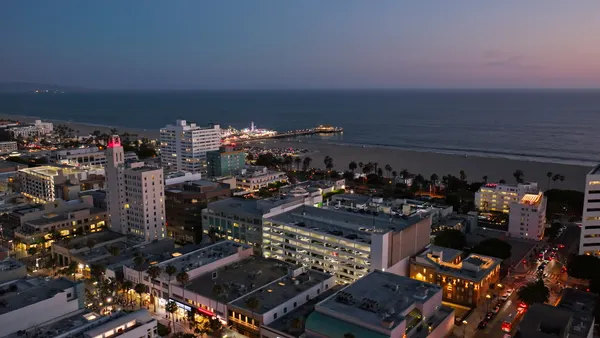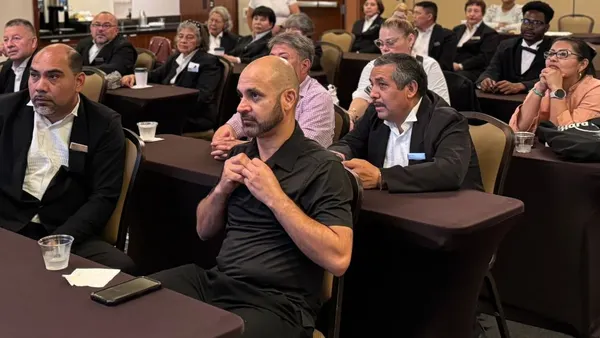The impact of hotel strikes on Los Angeles events was evident from the get-go, when Unite Here Local 11 members participated in the first wave of walkouts the same weekend as the Anime Expo.
The four-day convention, which attracts roughly 100,000 attendees annually, spanned the Los Angeles Convention Center and a handful of nearby hotels whose staff walked out that weekend. Online, some anime fans complained about the disruption (“My room hasn't gotten housekeeping for the last two days,” posted one Reddit user). Others were supportive of the strikers’ efforts (“They have every right to do what they are doing so please be kind to all staff striking,” wrote another).
And while the Anime Expo went on largely as planned, tensions around the event foreshadowed what was to come. Since the event in early July, Unite Here has publicly called for the American Political Science Association to cancel its convention, scheduled for late August. There have also been additional strikes — the first wave of walkouts the weekend of July Fourth was followed by a second a week later, and then a third after that, with potentially more to come.
As Southern California’s largest multihotel strike drags on, those affected include more than just hotel workers, hoteliers and guests. Events and meetings organizers are having to be particularly flexible and in some cases have relocated, rescheduled or outright canceled their events in solidarity with striking workers.
Though some organizers say the impact of large-scale event cancellations could harm the region as it recovers from its pandemic slump, others believe canceling is the right thing to do — even, sometimes, at great financial risk.
The event planner’s dilemma
Most conferences and conventions taking place in Los Angeles this summer were scheduled long before Unite Here Local 11’s strike authorization vote. Yet despite planning being well underway, some organizations opted to cancel or move their events.
The W.K. Kellogg Foundation, a Michigan-based philanthropic organization that advocates for the wellbeing of children, had planned to hold a convening at the InterContinental Los Angeles Downtown on July 13. It canceled the event after learning about the ongoing labor dispute at the property.
“Our primary focus is creating a world in which all children can thrive – something that is impossible unless their parents and caregivers can secure and maintain jobs that sustain their families,” the organization said in a statement. “We recognize workers’ rights to negotiate for fair wages and working conditions and see exercising those rights as critical and necessary to ensure children can grow up in homes and communities that protect and promote their well-being while providing pathways to a promising and equitable future.”
The Japanese American Citizens League did not cancel its convention, held from July 19-23, but rather moved it to other locations in Los Angeles’ Little Tokyo community. The organization said this would result in a reduction of size and cancellations of some events that were scheduled to take place at the DoubleTree by Hilton Hotel Los Angeles Downtown, which participated in the strike.
“We recognize the inconvenience this is creating for our attendees, sponsors, and speakers, but we believe this is important and necessary to support those fighting for living wages,” said David Inoue, JACL’s executive director, in a statement. “We hope for a swift resolution to the contract negotiations for the benefit of all parties involved.”
The Democratic Governors Association also relocated its event from the Beverly Hilton, opting to move scheduled proceedings to the Westin Bonaventure Hotel & Suites, the one L.A. hotel that has made a deal with its union workers thus far.
Other groups have chosen to continue with their events as planned — which hasn’t always gone smoothly.
The Television Academy went ahead with its plans to host its Los Angeles Area Emmy Awards at the Beverly Wilshire on July 22. Guests were filmed walking into the hotel past union workers, who were holding picket signs, and protesters shook maracas and banged drums.
An industry amid a comeback
In-person meetings took an early hit amid the pandemic and have slowly recovered, with 2023 slated to be a major year for meetings growth, according to hotel meetings market intelligence data provider Knowland. While most major urban meetings markets are still recovering from their pandemic slump, Southern California’s Anaheim is slated to make a full recovery this year. Meanwhile, Cvent named Los Angeles the No. 23 top meeting destination in North America.
“The risk with these cancellations, in general, is most are on a rotating schedule with other regions so it may be three/four years before they return, if then.”

Pete Hillan
spokesperson for the Hotel Association of Los Angeles and California Hotel & Lodging Association
Due to events’ critical importance toward properties’ overall revenue, hotels have found creative ways to keep their events staffed, even in the case of staff walkouts.
“Management at many Southern California properties has been anticipating the recent strikes we are now witnessing and have acted proactively to avoid any disruption to day-to-day operations — including large scale events and meetings,” said Amanda Monroe, a California-based attorney in the hospitality and labor and employment groups at Michelman & Robinson LLP. However, she added, “The solution has not been as straightforward as simply shifting staff from one property to another.”
Monroe told Hotel Dive that hotels currently experiencing strikes are relying on staffing agencies to ensure “as little disruption as possible” for large-scale events that may require more staff.
The rising popularity of staffing apps like Instawork — currently valued at over $700 million — has made adding last-minute employees easier for hoteliers, but not without some controversy. Union workers have decried the app for “penalizing” workers who join picket lines, and those who do often have their in-app employee ratings slashed, Kurt Petersen, co-president of Unite Here Local 11, told Reuters.
Monroe said event cancellations have more to do with an organization’s ideological stance than lowered standards for hotel service, adding that hotel management is “prepared to remain open and provide the same level of service guests have come to expect.”
“That said,” she added, “we should expect that at least some organizations holding large-scale meetings and events will be dissuaded by having to cross picket lines and dealing with the general disruption of the ongoing strikes.”
Pete Hillan, a spokesperson for the Hotel Association of Los Angeles and California Hotel & Lodging Association, told Hotel Dive that cancellations could have a lasting impact on the region’s events and meetings industry.
“The risk with these cancellations, in general, is most are on a rotating schedule with other regions so it may be three/four years before they return, if then,” he said. “The strikes, added to LA’s homelessness and safety concerns, make it difficult for convention planners to recommend LA to their clients as they cannot assure them that their visits will be free of LA issues.”
Legal recourse
Organizations that do opt to cancel, however, sometimes do so at their own risk.
Events contracts often include what is called a force majeure clause, which protects organizations from liability in the case of a major unexpected event. But labor disputes are rarely named as a potential event in contract language — meaning venues may hold organizers liable for costs in the case of cancellation due to a strike.
Elsewhere in the country, Unite Here has attempted to normalize labor dispute-related language in events contracts. Recently, the union collaborated with workers at two Accor-operated hotels to create AccorHotelAlert.org, which features suggested contract language that would allow organizers to cancel their meetings without penalty in the case of a labor dispute.
“Not having the right event contract language can be a big money mistake if the organization decides to move the event or attendees choose not to attend. A well-negotiated force majeure clause is important to moving, postponing, or canceling an organization’s event.”

Carrie Sallgren
director of customer organizing at Unite Here
Carrie Sallgren, Unite Here’s director of customer organizing, told Hotel Dive that the union has been sharing suggested contract language with events organizers for more than two decades and that the union’s language has successfully wound up in contracts with major hotels and casinos.
“Not having the right event contract language can be a big money mistake if the organization decides to move the event or attendees choose not to attend. A well-negotiated force majeure clause is important to moving, postponing, or canceling an organization’s event,” Sallgren said.
The multiwave, multihotel nature of the ongoing strikes makes it difficult to predict how long labor disputes will continue — and difficult for events organizers in solidarity with workers to tell when it will be safe to return to L.A. hotels. The W.K. Kellogg Foundation said that it hopes hotels, employees and union representatives will have reached an agreement by October 2023, when it hopes to reschedule its convening.
For now, recent statements from both sides of the disputes imply a resolution is still a long way off. “I would not be surprised to see events being rescheduled for the Fall and into the Winter when we expect negotiations to be complete,” Monroe said.



